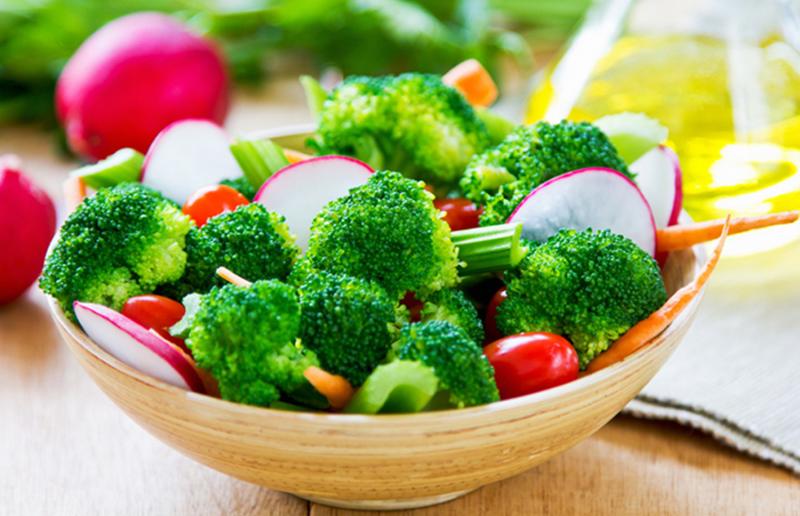Maintaining a healthy weight and lifestyle is becoming increasingly important in today's world where obesity rates are rising at an alarming pace. One key way to manage weight and avoid obesity is by opting for low-calorie foods in our diets. Low-calorie foods allow you to feel full and satisfied while consuming fewer calories compared to their high-calorie counterparts. In this article, we will explore some of the best low-calorie food options and how incorporating them can help support weight loss and overall wellness.
Fruits and vegetables
Fruits and vegetables should form the backbone of any Low-Calorie Diet plan aimed at losing weight. They are packed with essential vitamins, minerals, and fiber but are surprisingly low in calories. Aim to fill half your plate with a colorful variety of fruits and veggies at every meal for optimal nutrition. Some top low-calorie options to incorporate include berries, melons, cabbage, broccoli, cauliflower, celery, spinach, carrots, and tomatoes. For instance, a cup of strawberries contains only 46 calories! Many studies have linked higher intakes of fruits and vegetables with lower body weight over time. Their high water content also keeps you feeling full for fewer calories.
Lean proteins
Opting for lean protein sources is another must on a low-calorie diet. Protein is the most filling macronutrient and aids in preserving muscle mass during weight loss. Some great low-calorie protein options to choose from are skinless chicken or turkey breast, fish like salmon and tuna, eggs, nuts, beans, and low-fat yogurt. For example, a 4-ounce chicken breast has around 110 calories and contains essential amino acids to support overall health. Studies have shown that diets higher in protein can significantly boost metabolism and calorie burning compared to lower protein diets.
Whole grains
While avoiding overly processed or refined carbs is best when trimming calories, whole grains can still be included in moderation on a reduced-calorie plan. Whole grains digest more slowly and keep you full for longer due to their higher fiber content. Good choices include oatmeal, brown rice, quinoa, whole-wheat bread, and whole-grain pasta. For instance, a half cup of cooked brown rice has only about 100 calories. Whole grains have been associated with lower risks for obesity, heart disease, and diabetes compared to refined grains like white bread and pasta.
Healthy fats
Do not fear all fats - some are nutritious additions to a calorie-controlled diet in small amounts. Monounsaturated fats from oils, nuts, and avocados provide satiating healthy fats without excess calories. For instance, an ounce of almonds has around 160 calories but is high in fiber, protein, vitamins, and minerals. Extra virgin olive oil is another wonderful healthy fat, with 1 tablespoon containing around 120 calories yet antioxidant and anti-inflammatory benefits. Focus on these unsaturated fat sources in moderation over excess intake of saturated and trans fats, which research links to weight gain.
Herbs and spices
Another simple way to stay satisfied while cutting calories is by flavoring dishes with aromatic fresh or dried herbs and spices. These low-calorie ingredients add immense flavor without significant calories. Some great options to always keep stocked include basil, oregano, thyme, rosemary, garlic, ginger, turmeric, red pepper flakes, and cinnamon. They have been shown to boost metabolism and suppress appetite when incorporated in meals regularly. A dash or two can transform otherwise bland low-calorie meals into flavorful satisfying dishes with very minimal caloric impact.
Low-fat dairy
While full-fat dairy can be enjoyed in moderation by some, low-fat or nonfat dairy products provide calcium, protein, and other key nutrients for an excellent low-calorie alternative. For instance, one cup of nonfat plain Greek yogurt contains only around 80 calories and 17g of protein. Consider switching to fat-free or low-fat milk, yogurt, and cheese where possible. Research links low-fat dairy to better weight and cholesterol control compared to higher fat varieties. They aid feelings of fullness efficiently through their nutrient profile.
Water and other drinks
Staying well-hydrated is essential for health, and selecting zero-calorie beverages allows you to cut a lot of liquid calories easily. Water should form the base of hydration, with an intake goal of around eight 8-ounce glasses daily. Herbal tea, black coffee, and vegetable juices also contain few or no calories. They curb appetite and provide antioxidants. However, limit sugary sodas, fruit drinks, and alcoholic beverages which are high in "empty" calories that don't provide nutritional value relative to their calorie content. Studies show simple swaps like drinking water or unsweetened coffee instead of sugary drinks can aid weight loss significantly over months and years.
Mindful eating habits
In addition to choosing from lower calorie whole foods, setting small healthy habits makes a massive difference in weight management. Portion control through use of smaller plates, eating slowly with adequate chewing to truly taste and enjoy food, stopping when full instead of cleaning your plate unconditionally, and following regular mealtimes are some helpful techniques. Mindful eating attuned to physical hunger and fullness cues improves satiety and satisfaction levels from fewer calories. It prevents overeating driven more by emotions than actual need.
Overall, losing weight and leading a balanced lifestyle boil down to making gradual improvements in dietary choices and daily habits. The various nutritious yet lower calorie foods outlined provide the perfect foundation for reduced calorie intake and mindful eating. Combined with regular physical activity, this approach steadily achieves calorie deficit required for weight loss without feeling deprived or restricted. The benefits extend beyond appearance to better long-term health management and disease prevention.
Get More Insights On Low-Calorie Food
